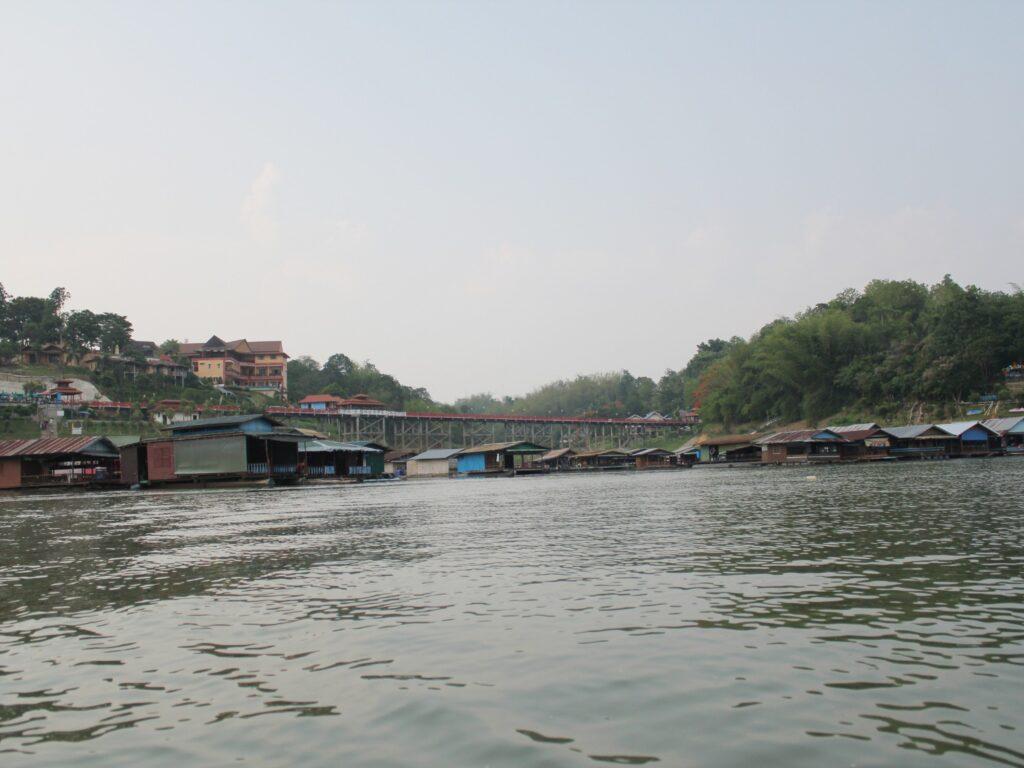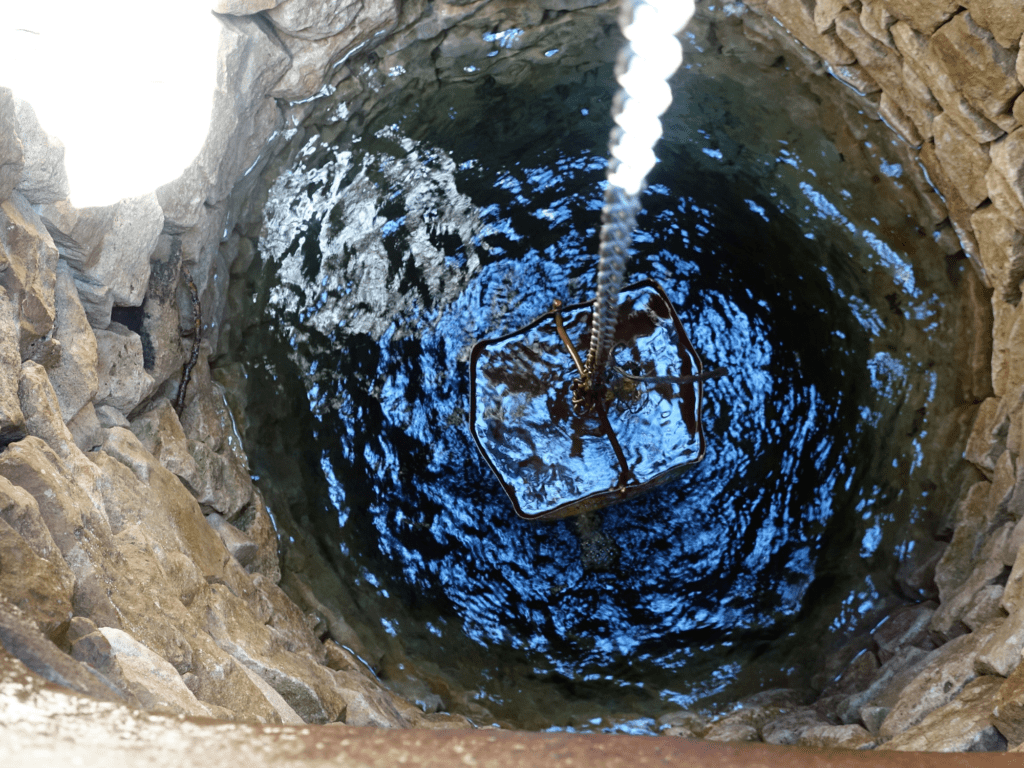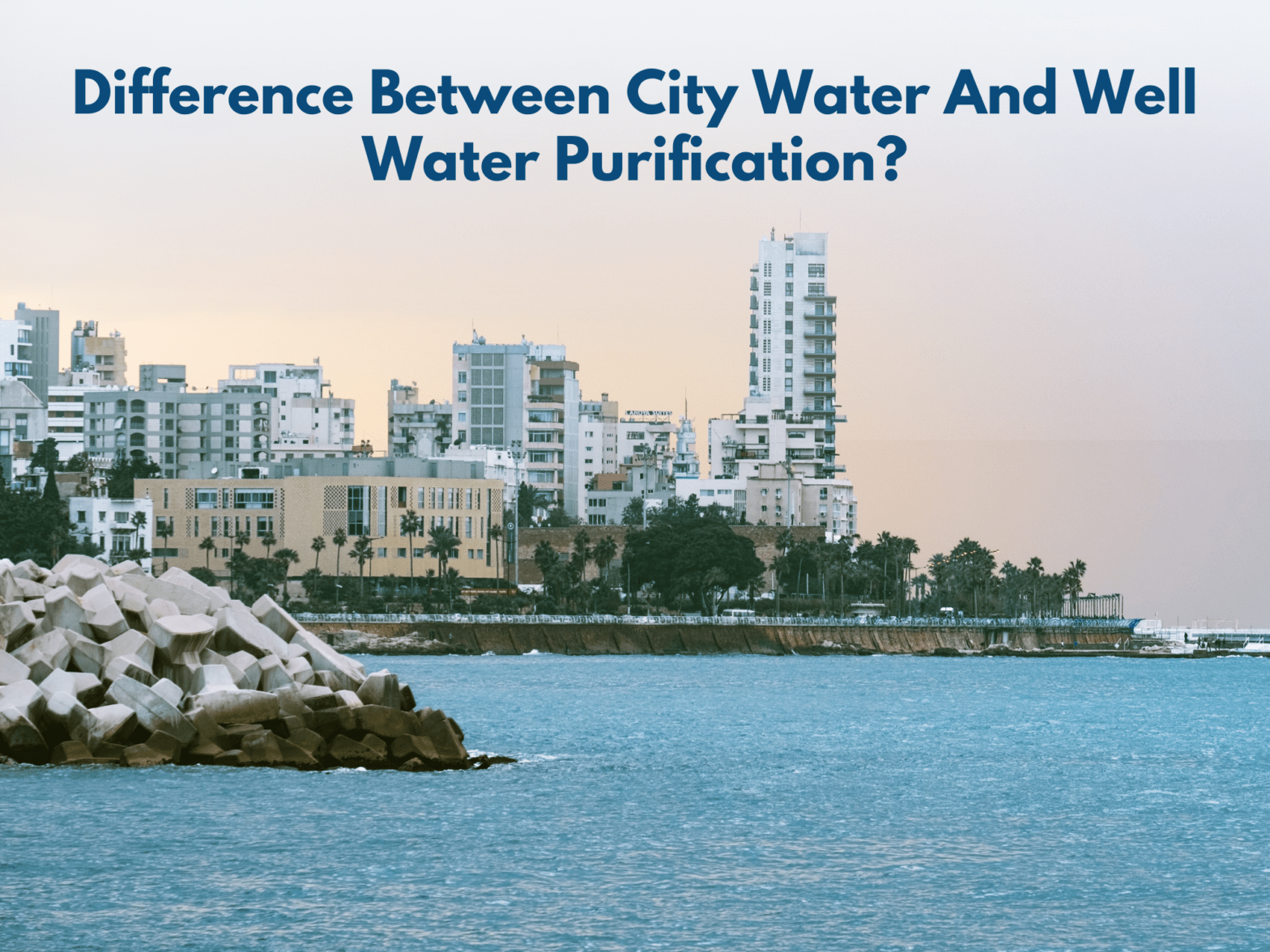Humans and our pets are dependent on water to survive. Clean, safe drinking water is essential to maintaining good health. It is important to note, however, that water sources differ. Most people obtain drinking water from city sources or wells. It is important to select the right purification system for both city water and well water. In this blog, we will discuss the differences between city water purification and well water purification.
People have a big misconception about well water. Most people think it is better than City water. Here are the facts:
43.2% of tested wells did not meet at least one federal health-based drinking water standard. And that’s not even counting the other 86,000 “no legal limit” toxic chemicals. Over 90% of all City water sources pass the EPA Mandates. This means people with well water need to send a sample off to ETRLabs.com and find out “What’s in their Well Water” – then contact us and we will guide you to the best way to purify your drinking water.

Cities need to purify their water:
Prior to distribution to homes and businesses, city water, also called municipal water, is treated by water treatment plants. Aside from the treatment process, several steps must be taken:
FLOCCULATION AND COAGULATION:
Chelating the water helps particles clump together, facilitating their removal.
The sedimentation process:
A period of time is allowed for water to sit before particles settle to the bottom.
Using filtration:
By filtering the water, any remaining particles are removed.
Disinfection:
Water disinfected with chlorine or another disinfectant kills viruses and bacteria.
Besides removing essential minerals, the treatment process also degrades the taste and quality of the water by removing calcium and magnesium.

Well Water Purification:
In water treatment plants, well water is not treated since it originates underground. Well, water may contain minerals like iron, manganese, and sulfur, along with bacteria, viruses, and other pathogens.
Pre-filtration, water softening, and post-filtration make up a well water purification system. Larger particles like sediment are removed by the pre-filter, and calcium and magnesium are removed by the water softener. Post-filters that use carbon are commonly used for removing remaining impurities and improving water taste and odor.
Differences between City Water and Well Water Purification:
Although well water purification and city water purification can be equally effective at removing contaminants, their processes differ. Here are some ways in which the two systems differ:
There are two types of water: city water and well water. Well, water is obtained from underground sources, whereas city water is treated by a centralized plant, regardless of its source.
Contaminant Types:
The water from a well might contain various contaminants, such as bacteria, viruses, and minerals, while water from a city is typically treated against bacteria, viruses, and chemicals.
Treatment Process: City water is treated at a water treatment plant, while well water is treated at the point of use.
Maintenance:
Keeping city water systems in good shape falls to municipalities while keeping well water systems in good shape falls to homeowners.
Cost:
There is a cost difference between water from city sources and well water, but installing and maintaining well water purification systems can be expensive. But if treated at the home level or at the “point of use”, we can keep the costs down with our high-quality filtration systems.
It is important to take your specific needs into consideration when choosing a water purification system. The flavor and odor of city water may be improved with a carbon filter system if you are using city water. A pre-filter, whole home, and post-filter may be necessary if your water comes from a well.
It is also important to test your water to ensure the purification system is working properly and effectively removing contaminants. You can identify changes in the quality of your water by testing it and then decide what type of purification system you need.
Based on this, we can conclude:
Whether you use city water or a well water purification system, you can remove contaminants from the water effectively. A water treatment plant removes bacteria, viruses, and chemicals from city water. Underground well water may contain minerals, bacteria, viruses, and minerals.
You should select a water purification system based on both your specific needs and the quality of the water source you use. Knowing the difference between city and well water will help you choose the right water purification system for you.
All Water Filtration Systems are custom-configured to work with your www.LifeWaterReport.com or your ETR Lab Well Water report.
If you have any questions, email and we will be happy to provide answers and guidance. Well, water users, please send in your ETR Lab Report and we will custom-build and configure your water purification system.
The Staff at Life Water Report
info@LifeWaterReport.com

